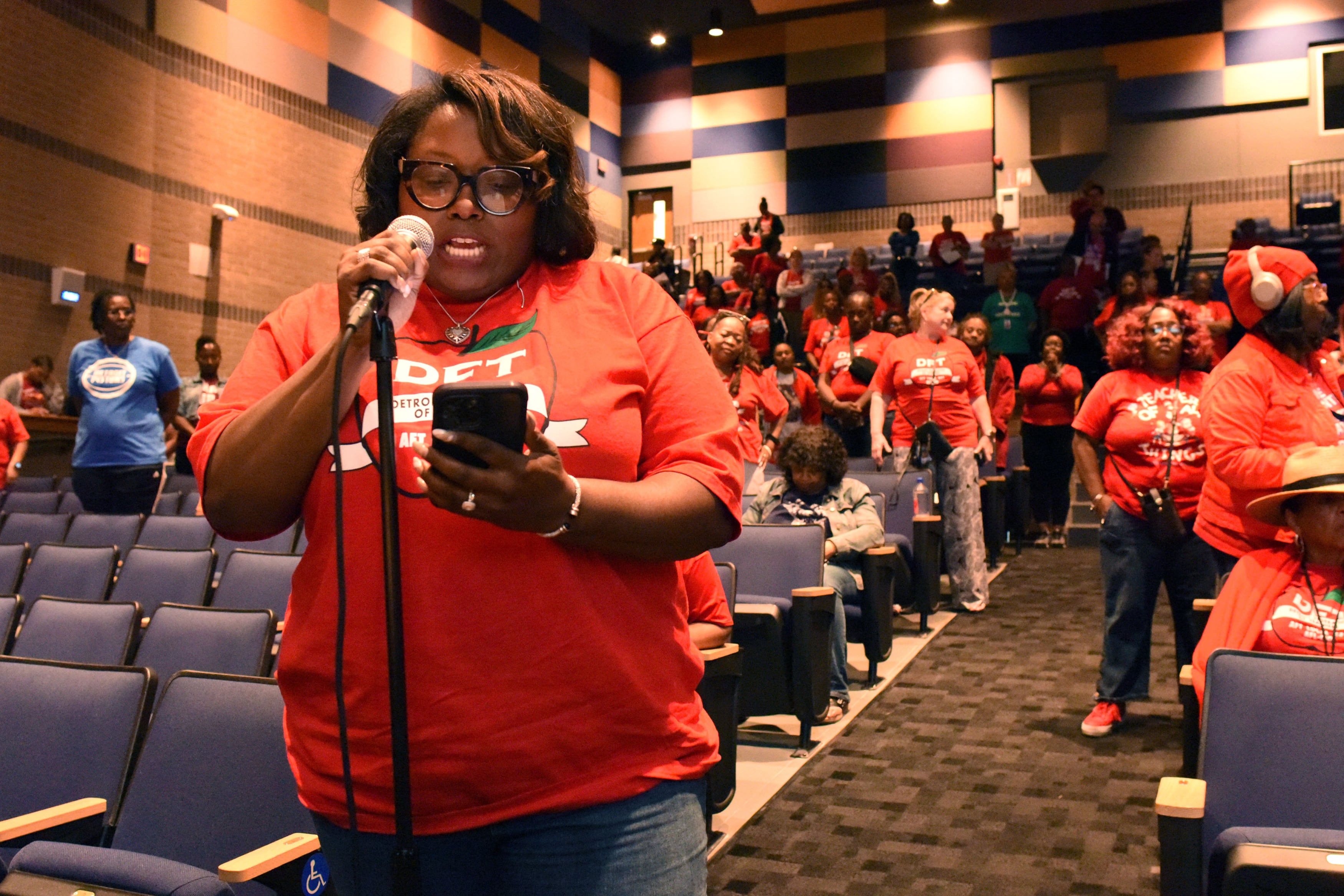Sign up for Chalkbeat Detroit’s free newsletter to keep up with the city’s public school system and Michigan education policy.
The Detroit school board is backing off a proposal that would have eliminated the opportunity for residents attending meetings online to make public comments.
The board twice delayed voting on the proposal in 2024, saying they wanted to hear from the public. What they heard was largely negative.
“After much public feedback, the policy to remove virtual comments will not come back on the agenda for Board Approval,” Corletta Vaughn, a board member who was elected the board’s president Tuesday, wrote in an email to a constituent who urged board members to abandon the proposed policy.
“Please know that we’ve listened and took seriously the long-term liability and impact this removal might have on our constituents,” Vaughn wrote.
Instead of getting rid of virtual public comment, Vaughn said the board would be exploring ways to make the virtual meetings, including commenting, more user friendly.
Meeting attendees have long complained about the virtual meeting process. It’s relatively easy to watch the meetings online, either on the district’s website or YouTube channel. But it’s often difficult to hear some speakers, especially those with soft voices. And online attendees only see a far away video of board members and district officials sitting on the stage of various school auditoriums (the meetings rotate from one school auditorium to another). Knowing who is speaking can be difficult because faces are so distant.
Attendees have also complained about the difficult process of making a public comment, which requires watching the meeting on one screen and signing into a Zoom webinar on another.
Meanwhile, there are sometimes virtual glitches, as occurred Tuesday when there was no virtual public comment because of technical difficulties.
Vaughn said in the email that the systems being used “are out of date and cumbersome.” She said it is her priority to improve the quality and accessibility of meetings.
“These changes will include visibility, improved sound, close captions, interpreters for our non-English speaking constituents, and a much more accessible way to make public comments seamless and engaging.
“This discussion has already begun with our media team leaders, and with a timeline of no more than 90 days to secure additional staff and resources, there will be intentional changes that the community will see and enjoy.”
Lori Higgins is the bureau chief for Chalkbeat Detroit. You can reach her at lhiggins@chalkbeat.org.






